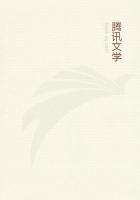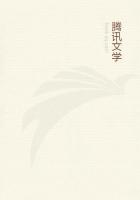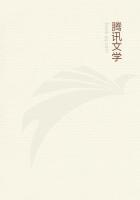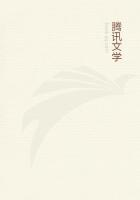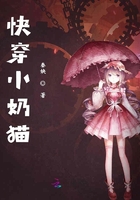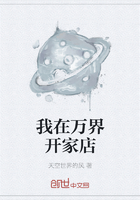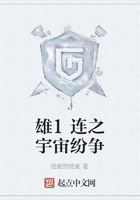COROLLARIES.--1.The republican constitution of 1793, which defined property as "the right to enjoy the fruit of one's labor," was grossly mistaken.It should have said, "Property is the right to enjoy and dispose at will of another's goods,--the fruit of another's industry and labor."2.Every possessor of lands, houses, furniture, machinery, tools, money, &c., who lends a thing for a price exceeding the cost of repairs (the repairs being charged to the lender, and representing products which he exchanges for other products), is guilty of swindling and extortion.In short, all rent received (nominally as damages, but really as payment for a loan) is an act of property,--a robbery.
HISTORICAL COMMENT.--The tax which a victorious nation levies upon a conquered nation is genuine farm-rent.The seigniorial rights abolished by the Revolution of 1789,--tithes, mortmain, statute-labor, &c.,--were different forms of the rights of property; and they who under the titles of nobles, seigneurs, prebendaries, &c.enjoyed these rights, were neither more nor less than proprietors.To defend property to-day is to condemn the Revolution.
SECOND PROPOSITION.
Property is impossible because wherever it exists Production costs more than it is worth.
The preceding proposition was legislative in its nature; this one is economical.It serves to prove that property, which originates in violence, results in waste.
"Production," says Say, "is exchange on a large scale.To render the exchange productive the value of the whole amount of service must be balanced by the value of the product.If this condition is not complied with, the exchange is unequal; the producer gives more than he receives."Now, value being necessarily based upon utility, it follows that every useless product is necessarily valueless,--that it cannot be exchanged; and, consequently, that it cannot be given in payment for productive services.
Then, though production may equal consumption, it never can exceed it; for there is no real production save where there is a production of utility, and there is no utility save where there is a possibility of consumption.Thus, so much of every product as is rendered by excessive abundance inconsumable, becomes useless, valueless, unexchangeable,--consequently, unfit to be given in payment for any thing whatever, and is no longer a product.
Consumption, on the other hand, to be legitimate,--to be true consumption,--must be reproductive of utility; for, if it is unproductive, the products which it destroys are cancelled values--things produced at a pure loss; a state of things which causes products to depreciate in value.Man has the power to destroy, but he consumes only that which he reproduces.
Under a right system of economy, there is then an equation between production and consumption.
These points established, let us suppose a community of one thousand families, enclosed in a territory of a given circumference, and deprived of foreign intercourse.Let this community represent the human race, which, scattered over the face of the earth, is really isolated.In fact, the difference between a community and the human race being only a numerical one, the economical results will be absolutely the same in each case.
Suppose, then, that these thousand families, devoting themselves exclusively to wheat-culture, are obliged to pay to one hundred individuals, chosen from the mass, an annual revenue of ten per cent.on their product.It is clear that, in such a case, the right of increase is equivalent to a tax levied in advance upon social production.Of what use is this tax?
It cannot be levied to supply the community with provisions, for between that and farm-rent there is nothing in common; nor to pay for services and products,--for the proprietors, laboring like the others, have labored only for themselves.Finally, this tax is of no use to its recipients who, having harvested wheat enough for their own consumption, and not being able in a society without commerce and manufactures to procure any thing else in exchange for it, thereby lose the advantage of their income.
In such a society, one-tenth of the product being inconsumable, one-tenth of the labor goes unpaid--production costs more than it is worth.
Now, change three hundred of our wheat-producers into artisans of all kinds: one hundred gardeners and wine-growers, sixty shoemakers and tailors, fifty carpenters and blacksmiths, eighty of various professions, and, that nothing may be lacking, seven school-masters, one mayor, one judge, and one priest; each industry furnishes the whole community with its special product.
Now, the total production being one thousand, each laborer's consumption is one; namely, wheat, meat, and grain, 0.7; wine and vegetables, 0.1; shoes and clothing, 0.06; iron-work and furniture, 0.05; sundries, 0.08; instruction, 0.007;administration, 0.002; mass, 0.001, Total 1.
But the community owes a revenue of ten per cent.; and it matters little whether the farmers alone pay it, or all the laborers are responsible for it,--the result is the same.The farmer raises the price of his products in proportion to his share of the debt;the other laborers follow his example.Then, after some fluctuations, equilibrium is established, and all pay nearly the same amount of the revenue.It would be a grave error to assume that in a nation none but farmers pay farm-rent--the whole nation pays it.
I say, then, that by this tax of ten per cent.each laborer's consumption is reduced as follows: wheat, 0.63; wine and vegetables, 0.09; clothing and shoes, 0.054; furniture and iron-work, 0.045; other products, 0.072; schooling, 0.0063;administration, 0.0018; mass, 0.0009.Total 0.9.

